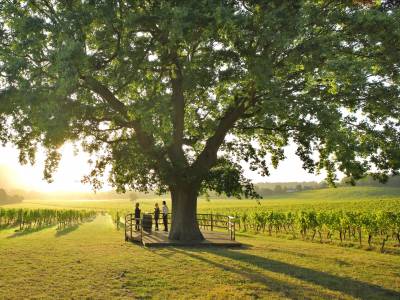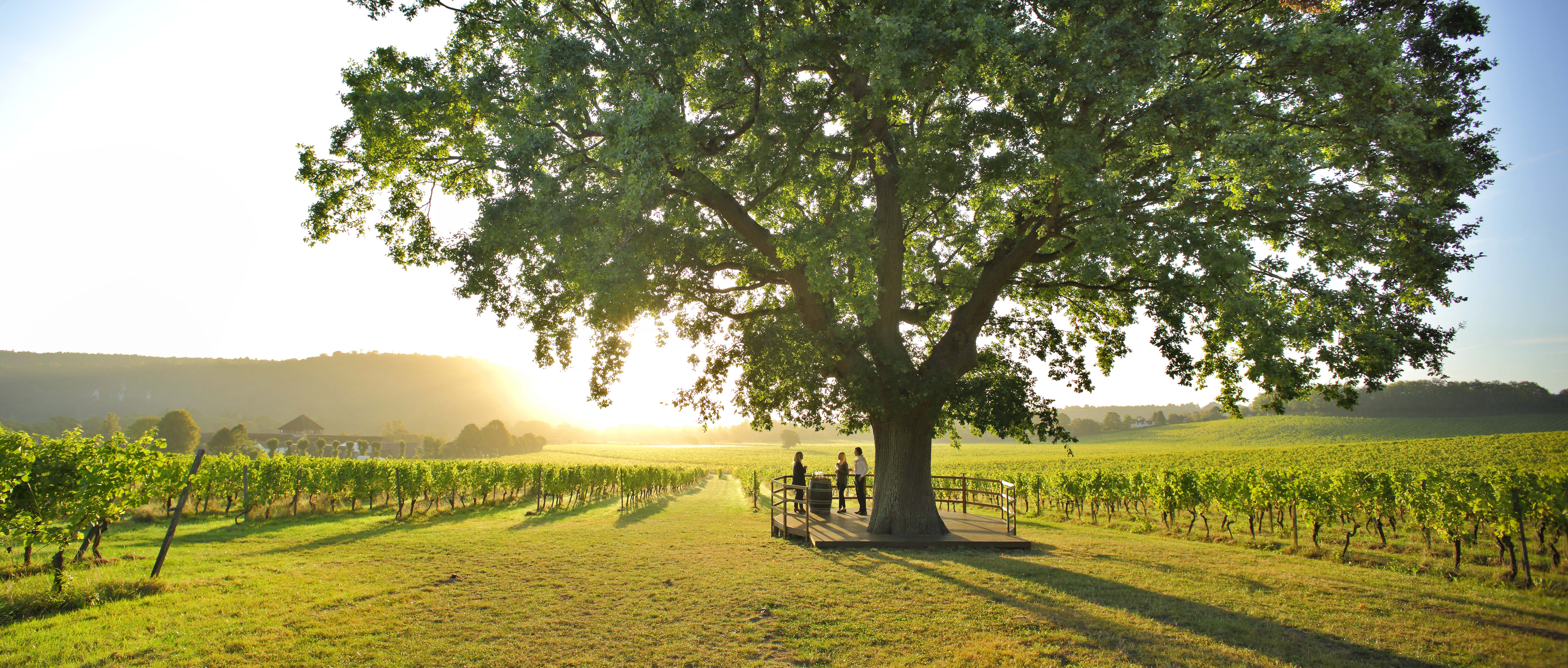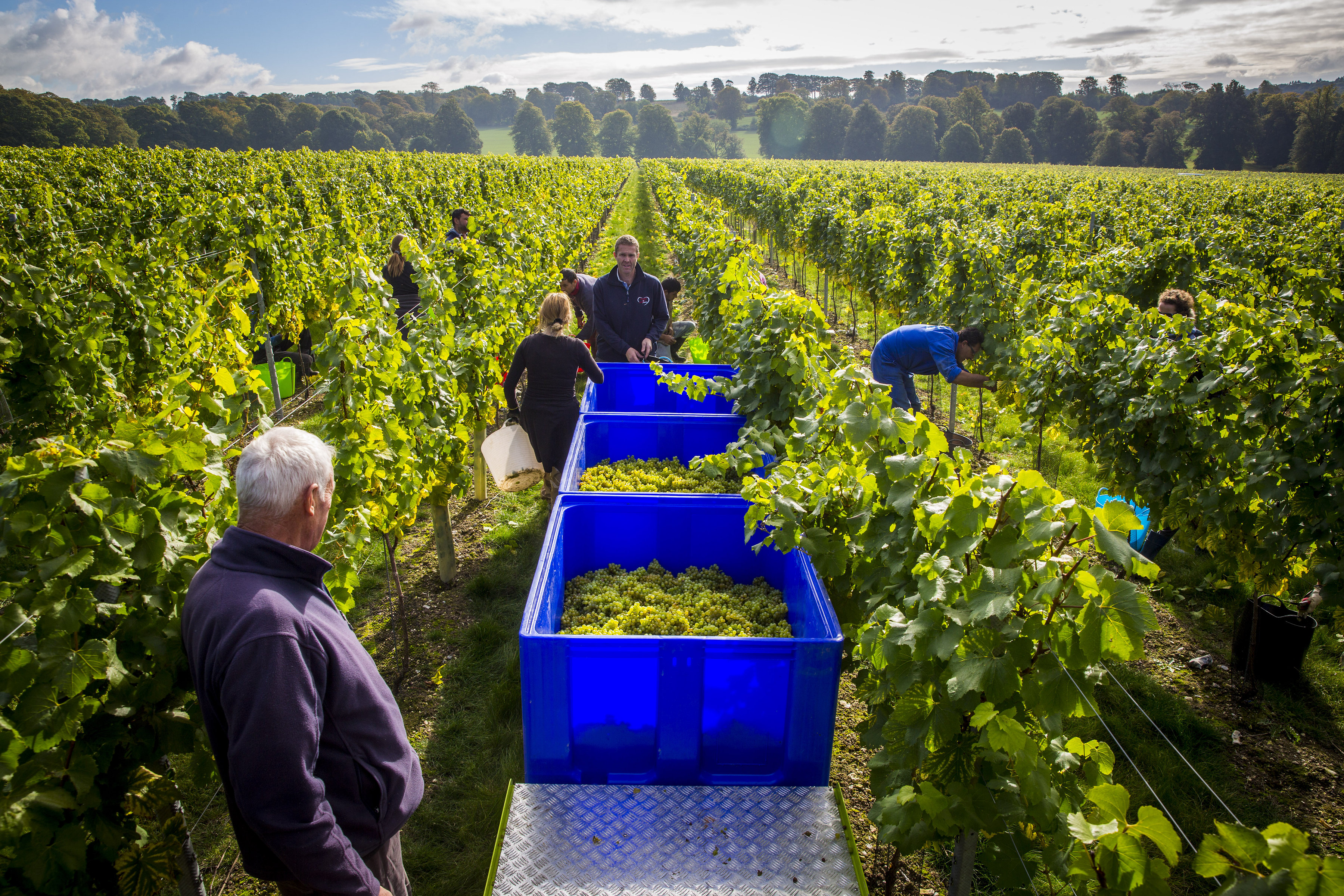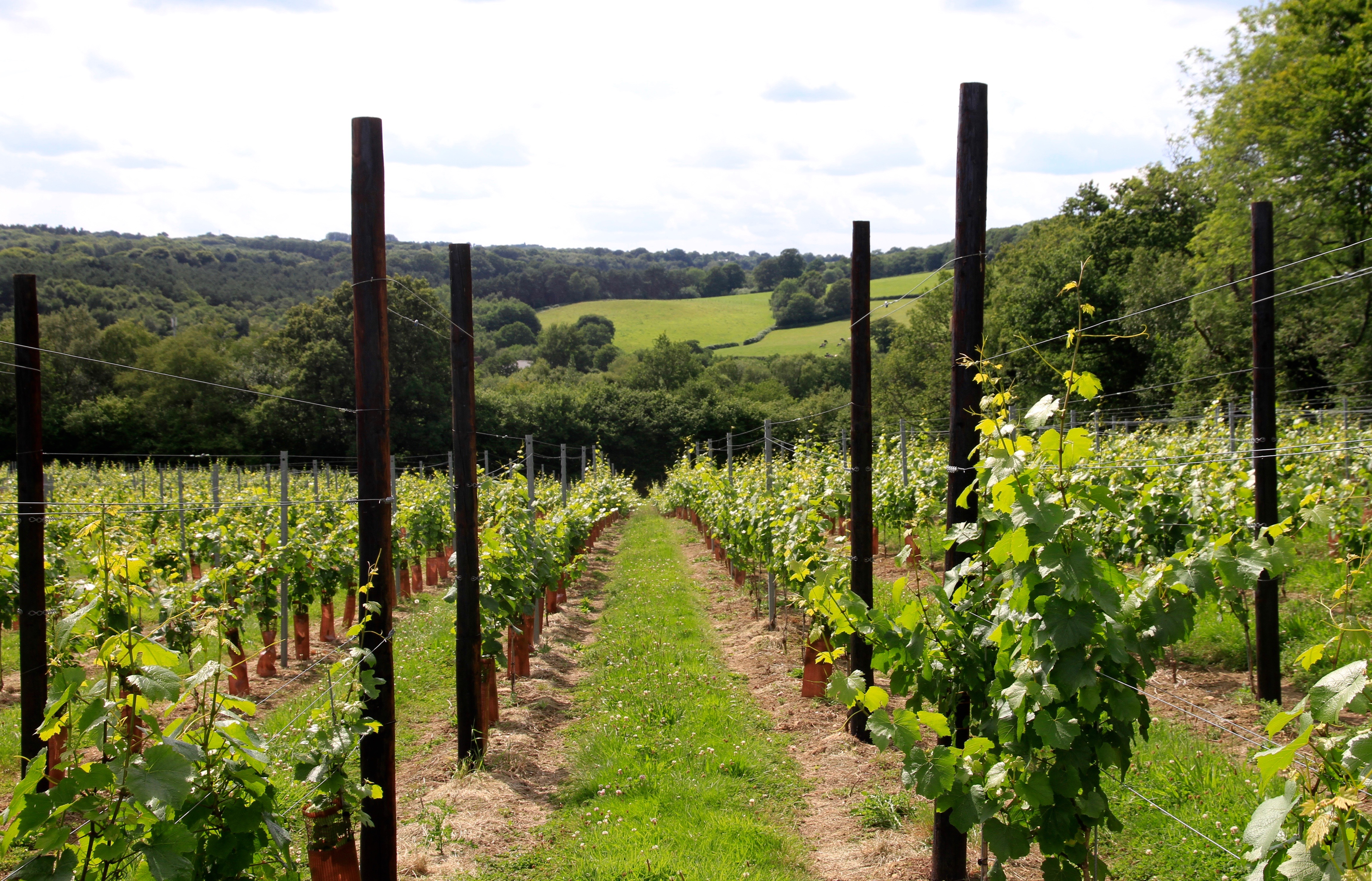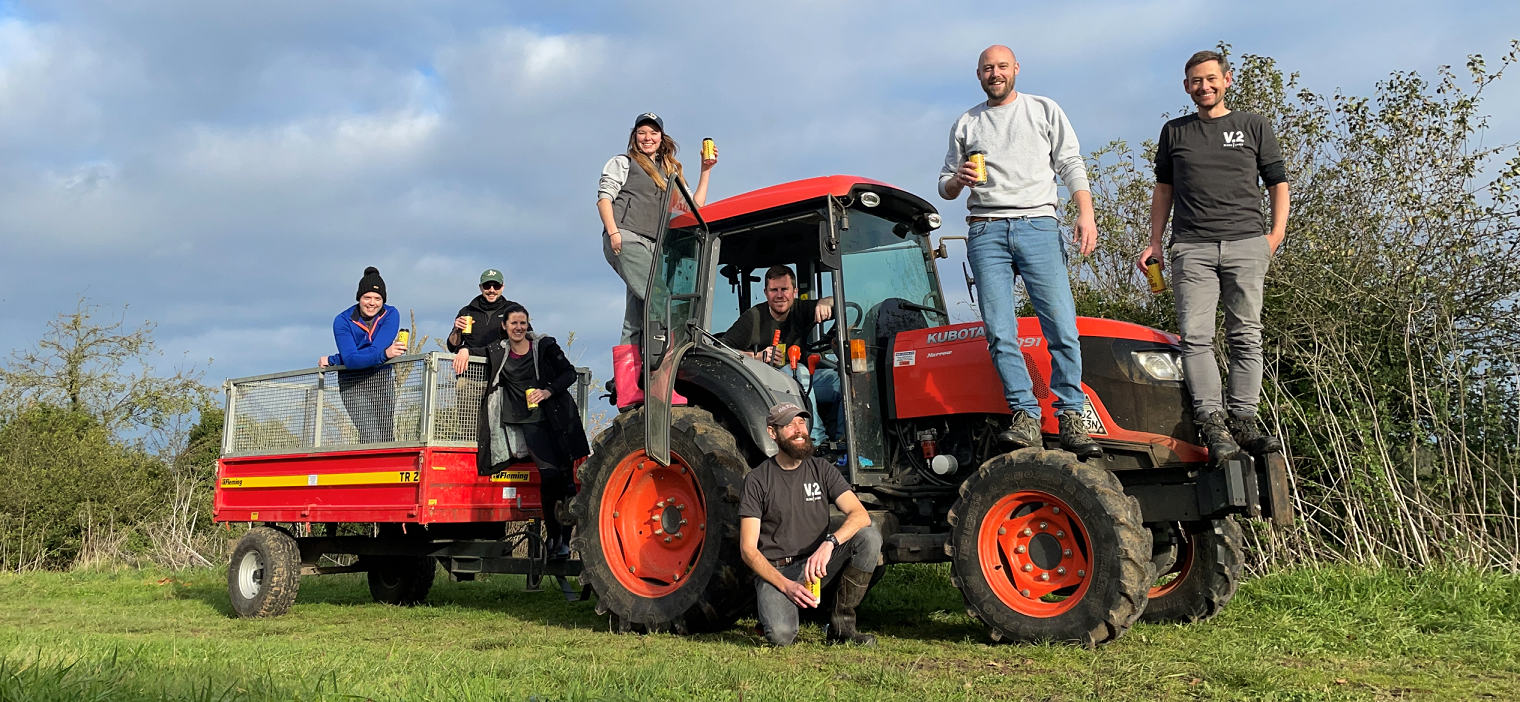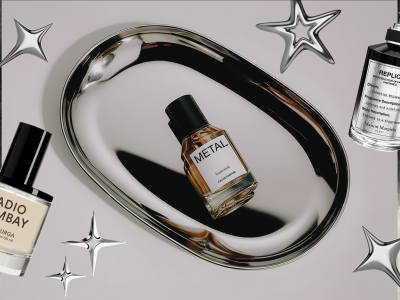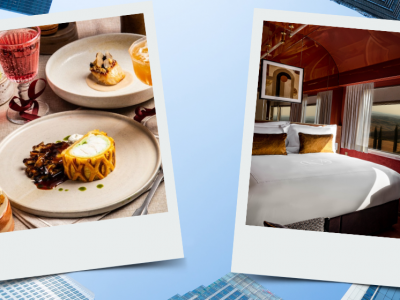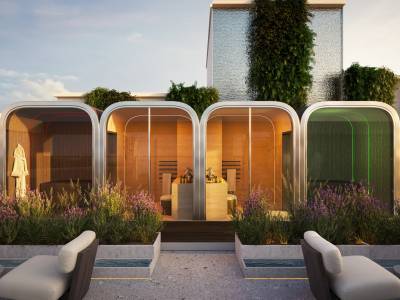Over the past few decades, ever-increasing portions of England’s green and pleasant lands have been turning golden and red in summer, as more would-be winemakers, encouraged by their neighbours’ success and the ever warmer climate, plant vines on their acres. Some are content to keep things simple: harvest grapes, make wines, sell wines, repeat. But several are equally determined to harvest the public’s blossoming interest in homegrown wines and are offering tours, restaurants or overnight stays on their premises.
Curiosity about the landscape where the wine is made and about the process used to make it go together, and the more adventurous English winemakers are responding to both, in unusual and interesting ways. The effects of a thriving and innovative industry ripple outwards, as local wines win their place on the lists of surrounding restaurants and hotels, and events spring up to celebrate their success. Vineyards of Hampshire Fizz Fest will be doing just that on 24 July, with wine tastings, food stalls and live entertainment (booking is essential). The venue for Fizz Fest is one of the county’s best vineyards, Black Chalk, on the banks of the River Test, and when they aren’t holding festivals, brothers-in-law Jacob Leadley and Andrew Seden have plenty going on.
